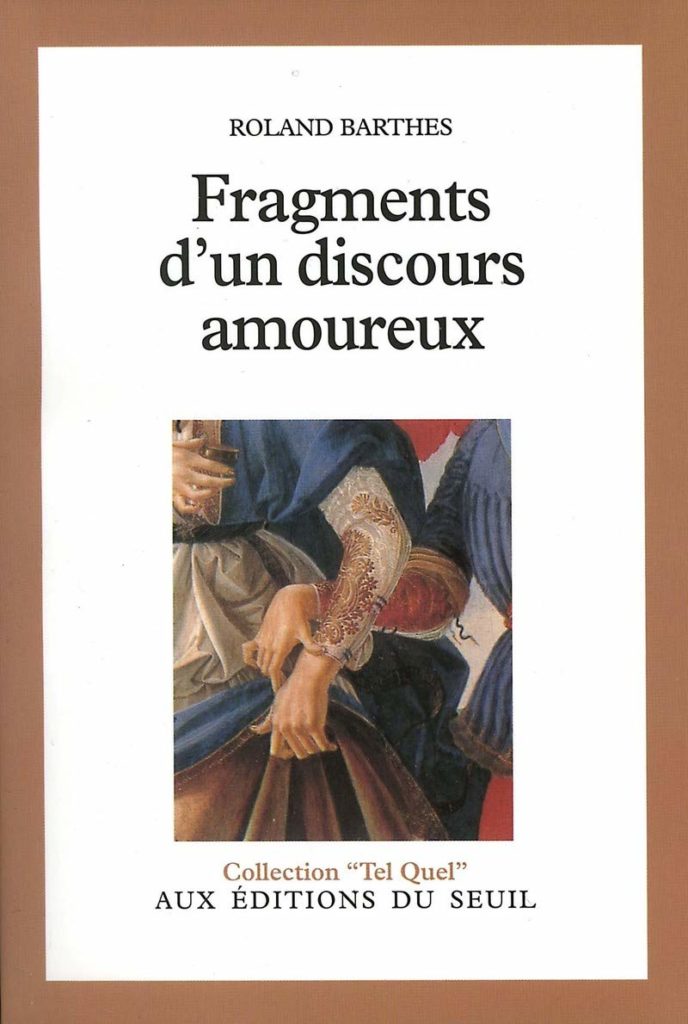Fragments d’un discours amoureux (A Lover’s Discourse)

“Language is a skin: I rub my language against the other. It is as if I had words instead of fingers, or fingers at the tip of my words. My language trembles with desire.” -Roland Barthes
The lover conquers or fails in his speech. His quest resides not in the other, but in the existence with the other. As we read, we cherish the empathy of the Lovers experience, because we, as the voice we read, are also hoping, waiting, and embracing the abyss.
Roland Barthes in A lover’s discourse impels us to pierce and question the reality of love. We traverse the wound of the lover through language. Borrowing the imagery of other great writers and thinkers (Plato’s, Goethe’s, Nietzsche’s, Sade’s, Blanchot’s…), he constructs a Dis-cursus: a path that the lover follows where an I is exposed, a subject that must endure the silence of the loved one. The body becomes language, a fissured vase that is riddled with the fear of rupture and repetition.
Language becomes the construct of the lover’s experience. In Barthes’ essay, the lover’s voice makes language shiver in the anguish of losing again what was once already lost. There is a quest that we, as readers, must assume.
Fragments d’un discours amoureux, Roland Barthes, Points, 2020 / A Lover’s Discourse, by Roland Barthes, trans by Richard Howard, Hill and Wang.

